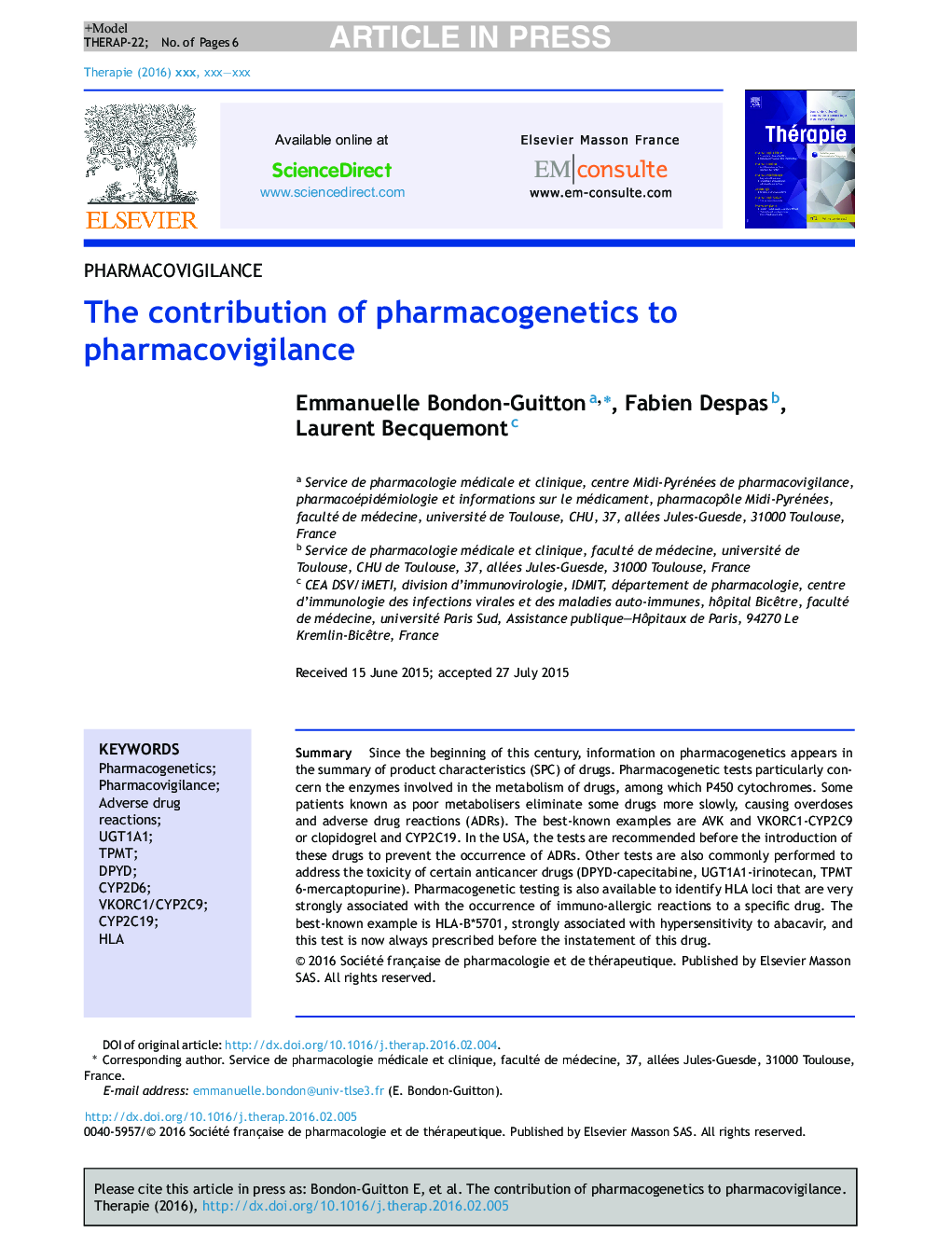| Article ID | Journal | Published Year | Pages | File Type |
|---|---|---|---|---|
| 2578625 | Thérapie | 2016 | 6 Pages |
Abstract
Since the beginning of this century, information on pharmacogenetics appears in the summary of product characteristics (SPC) of drugs. Pharmacogenetic tests particularly concern the enzymes involved in the metabolism of drugs, among which P450 cytochromes. Some patients known as poor metabolisers eliminate some drugs more slowly, causing overdoses and adverse drug reactions (ADRs). The best-known examples are AVK and VKORC1-CYP2C9 or clopidogrel and CYP2C19. In the USA, the tests are recommended before the introduction of these drugs to prevent the occurrence of ADRs. Other tests are also commonly performed to address the toxicity of certain anticancer drugs (DPYD-capecitabine, UGT1A1-irinotecan, TPMT 6-mercaptopurine). Pharmacogenetic testing is also available to identify HLA loci that are very strongly associated with the occurrence of immuno-allergic reactions to a specific drug. The best-known example is HLA-B*5701, strongly associated with hypersensitivity to abacavir, and this test is now always prescribed before the instatement of this drug.
Related Topics
Health Sciences
Pharmacology, Toxicology and Pharmaceutical Science
Pharmacology, Toxicology and Pharmaceutics (General)
Authors
Emmanuelle Bondon-Guitton, Fabien Despas, Laurent Becquemont,
